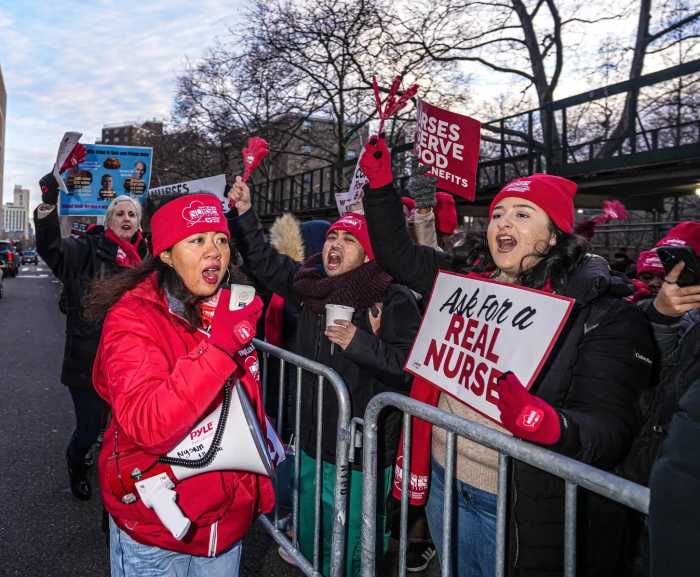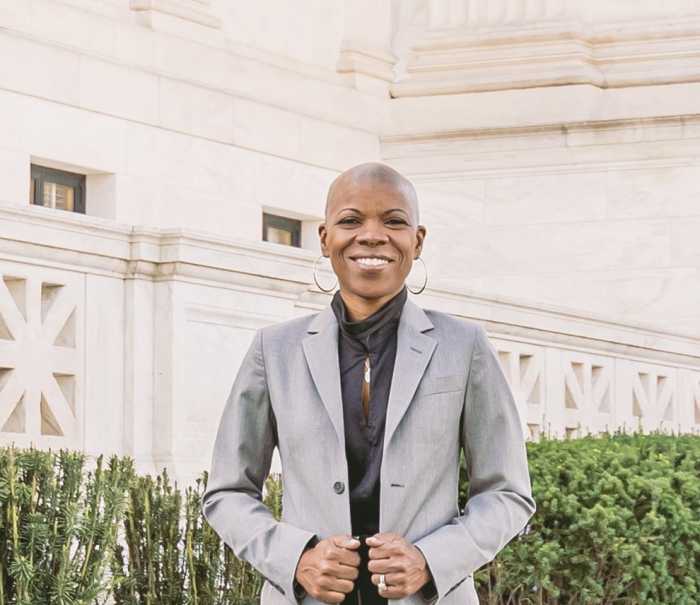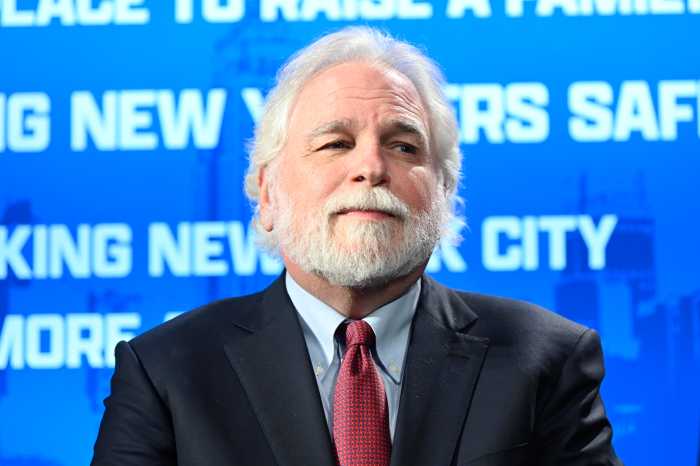Activists, leaders gather to brainstorm on risks in federal Ryan White changes
Activists joined representatives from the city and the state to strategize about the likely impact of changes to the Ryan White AIDS Care Act, the leading federal vehicle for funding AIDS treatment and services, which is due to be reauthorized by Congress this fall.
The gathering last Friday at the Federation of Protestant Welfare Agencies on Park Avenue South, led by groups including the New York AIDS Coalition (NYAC), the Gay Men’s Health Crisis (GMHC), and Housing Works, listened to concerns that proposals made by the Bush administration will hurt New York and major urban areas generally. AIDS groups in the South and rural areas have had success in demanding that greater funds be shifted to meet a more newly emerging epidemic in those areas.
“New York is a model for other states on how to do it right,” said Susan Abramowitz, co-director of NYU’s program for women and children affected by AIDS, one of the meeting’s presenters. “Going backwards is not the right way,”
“This is a divide and conquer strategy being used,” said Daryl Ng, director of government relations at GMHC, talking about priorities being articulated by Michael Leavitt, the secretary of Health and Human Services. “It pits us against Southern states; medical providers against social services.”
Jon Winkelman, who serves on the boards of both the Stonewall Democratic Club here in New York and the National Stonewall Democratic Federation, voiced concerns that after the August recess, a bill might be “rammed through” Congress by the Republican leadership, offering no one time to work out important details.
Robert Cordero, of Housing Works, cited sources on Capitol Hill that assured him that Democrats would wage a “blood bath” if such an attempt were made.
Both urged those in attendance to press Senator Hillary Rodham Clinton’s office to exert her influence in delaying efforts by Republicans to bum-rush the issue. But panelists also noted that moderate Republicans will be key to the effort to stem the flow of AIDS funds out of New York.
Jan Carl Park, executive director of the city Bureau of HIV/AIDS, represented the Bloomberg administration at the event, and he pointed to a letter the mayor sent to representatives on the two Congressional committees where negotiations over the Ryan White CARE Act will be debated. The mayor expressed “wholehearted support” for “promoting accountability,” which is a buzzword among Republicans aiming to change existing funding priorities, but listed a number of the Bush administration’s principles about which he was “deeply concerned.”
New York State is fortunate in that its Republicans in Congress tend to be moderate, but “know how to talk Republican,” Cordero noted.
That language is about dollars and cents, commented Mark McLaurin, the panel’s chairman who is NYAC’s director of federal affairs.
“Republicans understand money,” he said. “We have to explain to them that reauthorization means less money for your district.”
Speaking to Republicans wasn’t the meeting’s only concern. Framing the complicated issues involved for people unfamiliar with Ryan White was a major theme of the strategy session. McLaurin shorthanded the issue by saying it would be accurate to say “if this goes through, Ryan White funding could be cut by half and that will hurt a lot of people.”
One of the concerns raised by Bloomberg in his letter to Congress was the definition of “core medical services” in the Ryan White reauthorization.
GMHC’s Ng addressed this concern when he spoke about approved drug lists made by those administering state AIDS Drug Assistance Programs or ADAP. New York requires more than 450 drugs be made available to emergency patients, while other state have as few as 30. Panelists voiced the fear that new federal guidelines could reduce the availability of drug access in states with expansive lists such as New York. They also noted that mental health services, drug rehabilitation treatment, and other services could be defined as outside the “core” by Bush’s new guidelines.
According to Abramowitz, the redefinition of “core” could seriously hurt children in New York who have the disease. She noted that many of the services provided them would not meet the Bush requirement that 75 percent of funds go to “medical services.” If too narrowly defined, the new guidelines would mean the decimation of programs helping a population already largely ignored, she said. She mentioned, for example, the need for psychological care for adolescents who have lived with HIV since birth and are now sexually mature. She noted the irony that the legislation is named for a youth who led the battle for HIV awareness and died at 19.
One aspect of proposed reforms that came in for particular criticism from Housing Works’ Cordero was that funding would be based on reported AIDS cases, without any break on the pace of reduction in any one city’s annual funding, effectively penalizing New York City for effective treatment efforts that slow the progression from HIV infection to an AIDS diagnosis in the population. In more simplistic fashion, some Republicans argue that if AIDS rates fall in one area, funding should follow rises elsewhere.
No one at the strategy session argued against the push to fund AIDS services in other areas of the country.
“Our goal is to develop a sane Ryan White reauthorization bill,” NYAC’s McLaurin said.
Joey Pressley, NYAC’s executive director, reminded everyone, “We have to organize as though we’re working to get Ryan White all over
again.”
gaycitynews.com




































